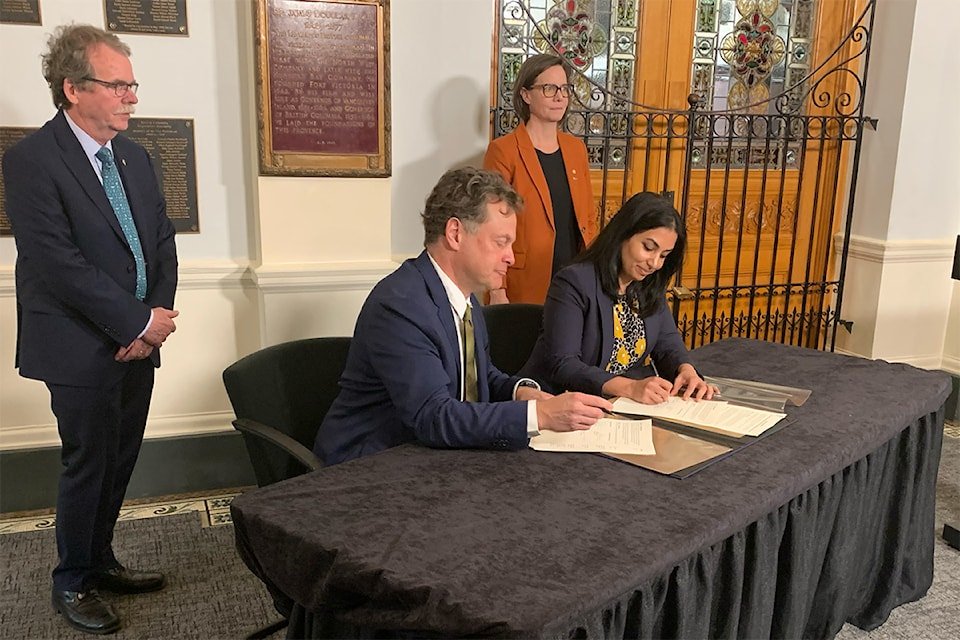A cooperation deal between the B.C. NDP and Green Party has led to progress in select areas, but most actions remain in review stages. This was revealed in the second quarterly update shared by both parties on August 5 in Vancouver.
The agreement, signed in March after being announced in December, allows the Green Party to support the NDP government on confidence votes and selected laws. In exchange, both parties work on shared goals and report updates every quarter.
So far, only two items in the deal have led to real-world results. These include $75 million in expanded support for renters and backing for non-profits to buy 3,180 housing units. These steps aim to ease the province’s housing stress, especially for seniors and low-income families.
Several other issues are under active review. Committees are working on solutions, but they have yet to present clear actions. Jeremy Valeriote, the interim leader of the B.C. Green Party, said these steps are part of a careful, fact-based plan.
“If they were ready, we would have acted already,” he explained.
Despite limited visible change, Valeriote defended the pace. He said the aim is to build strong policies backed by data, not rush decisions.
The NDP currently holds a one-vote majority. This slim margin means the Speaker may need to break tie votes, especially if any NDP MLA is absent.
While the NDP doesn’t need the Greens to pass laws, the extra support helps. Still, the current deal gives the Greens more space to say no to some bills without breaking the agreement.
This happened recently when the Greens opposed two fast-tracked laws, Bills 14 and 15. These were passed using the Speaker’s tie-breaking vote, but the incident showed the Greens’ independence.
Valeriote said that freedom to disagree is built into the deal. He admitted that it hasn’t always gone smoothly. He spoke openly about times when more talks could have helped both sides agree.
“There’s frustration sometimes,” he said. “We wish we had more time to talk and find middle ground.”
Some of the laws the Greens opposed were responses to sudden issues, like tariff threats. These problems became urgent after the deal was first created.
One major success from the deal so far is increased housing help. Renters now have better access to Shelter Aid for Elderly Renters and the Rental Assistance Program. Also, non-profit groups are getting support to buy homes and keep them affordable for families in need.
These moves match long-standing Green and NDP goals on housing. Still, some critics say more action is needed quickly, especially as living costs rise.
Both parties say the deal is still working. They agree that it helps push shared goals forward. But the slow pace raises questions about how much real change the agreement will bring over time.
The next quarterly report will likely be closely watched. Voters will want to see if more plans turn into real actions in the coming months.

